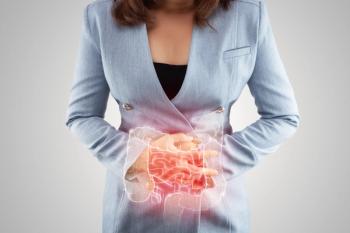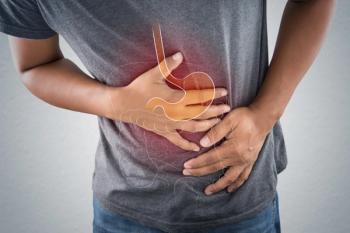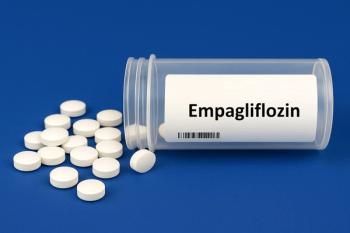
Study: Cobitolimod As Induction Therapy For Moderate-To-Severe Left-Sided Ulcerative Colitis
Results of the phase 2b study showed that, in its highest-dosing arm, 21% of patients with left-sided ulcerative colitis were in clinical remission.
Results of a new study demonstrated favorable results for cobitolimod as an induction therapy in patients with moderate-to-severe, left-sided ulcerative colitis (UC).1
The study, published in The Lancet Gastroenterology and Hepatology, confirmed previous studies’ assertions of clinical efficacy in regard to cobitolimod within this patient population.1
Cobitolimod is a first-in-class, topically administered, DNA-based oligonucleotide that activates Toll-like receptor 9 (TLR9).1,2 The drug can induce an anti-inflammatory effect locally in the large intestine and may result in mucosal healing and relief of the clinical symptoms associated with UC.2
UC is a chronic disease characterized by inflammation of the large intestine, affecting an estimated 2 million individuals in Europe and the United States. Symptoms include blood- and mucus-mixed diarrhea, frequent stools, abdominal pain, fever, weight loss, and anemia, as well as a heightened risk for colon cancer.
The CONDUCT study was a randomized, double-blind, 5-arm, placebo-controlled, dose-ranging phase 2b study that included 211 patients with moderate-to-severe UC who demonstrated inadequate responses to conventional or biological treatment options. Participants from 91 hospitals in 12 European countries – Czech Republic, France, Germany, Hungary, Italy, Poland, Romania, Russia, Serbia, Spain, Sweden, and Ukraine – were included in the study.1
Between June 30, 2017, and June 26, 2019, patients were separated into 5 study arms: 40 in the cobitolimod 2 doses, 31-mg group; 43 in the 2 doses, 125-mg group; 42 in the 4 doses, 125-mg group; 42 in the 2 doses, 250-mg group; and 44 in the placebo group.1 The exploratory study evaluated cobitolimod’s efficacy and safety in inducing clinical remission compared with placebo.1
CONDUCT met its primary end point, with 21.4% of patients within the 2 x 250-mg arm in clinical remission at week 6, compared with 6.8% in the placebo group.1,2
The study authors wrote that TLR9 is “a promising novel therapeutic target in ulcerative colitis,” and further investigation, including phase 3 trials, are in the works.1
"Based on the available data, cobitolimod appears to have a compelling safety profile, while delivering clinically relevant efficacy,” said Professor William J. Sandborn, MD, chief of the division of gastroenterology of the University of California San Diego and co-author of the study.2 “Given also the infrequent dosage regimen, cobitolimod looks a promising candidate for moderate to severe left-sided ulcerative colitis," Sandborn said.
References:
- Atreya R, Peyrin-Birulet L, Klymenko A, et al. Cobitolimod for moderate-to-severe, left-sided ulcerative colitis (CONDUCT): a phase 2b randomized, double-blind, placebo-controlled, dose-ranging induction trial. The Lancet. October 5, 2020. doi: https://doi.org/10.1016/S2468-1253(20)30301-0.
- The Lancet Gastroenterology and Hepatology publishes InDex Pharmaceuticals’ results of the phase IIb study with cobitolimod. News release. BioSpace; October 6, 2020. Accessed October 7, 2020.https://www.biospace.com/article/releases/the-lancet-gastroenterology-and-hepatology-publishes-index-pharmaceuticals-results-of-the-phase-iib-study-with-cobitolimod/
Newsletter
Pharmacy practice is always changing. Stay ahead of the curve with the Drug Topics newsletter and get the latest drug information, industry trends, and patient care tips.























